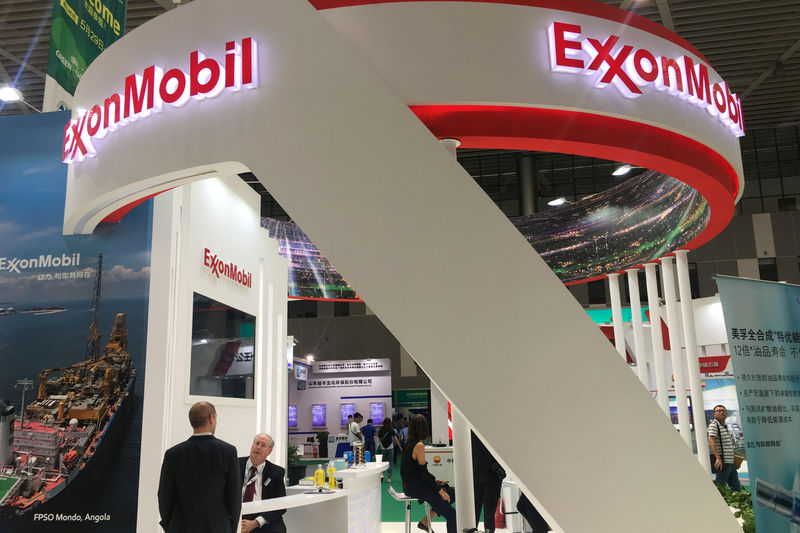© Reuters.
ExxonMobil (NYSE:) is urging the Biden Administration to allow hydrogen derived from , known as blue hydrogen, to be eligible for substantial tax credits under the Inflation Reduction Act (IRA), according to internal company documents reviewed by Bloomberg. The energy giant is banking on blue hydrogen, produced via carbon capture and storage (CCS) to eliminate most emissions, as a cornerstone of its low-carbon solutions division, alongside CCS and biofuels.
The IRA, enacted in August 2022, encompasses nearly $370 billion in climate and clean energy provisions. Included are investment and production credits for solar, wind, storage, hydrogen, and critical minerals, funding for energy research, as well as credits for clean energy technology manufacturing such as wind turbines and solar panels. The Act also provides a 45V credit for the production of clean hydrogen made from electrolysis. However, detailed guidance on eligibility for this subsidy, which could reach up to $3 per kilogram of hydrogen, has not yet been issued by the U.S. Treasury Department.
ExxonMobil’s Vice President of Public and Government Affairs, Matt Furman, stated in an interview with Bloomberg that the company’s gas-derived hydrogen could be ‘clean’ enough to qualify for the highest tax credits under the IRA if permitted. Furman added that Exxon’s assertions about the cleanliness of its blue hydrogen are backed by U.S. government officials who conducted the modeling.
CEO Darren Woods personally advocated for ExxonMobil’s case last week during meetings with White House clean energy advisor John Podesta and key legislators. ExxonMobil argues that it can produce hydrogen from natural gas without emitting significant amounts of carbon dioxide, thus creating a fuel as climate-safe as hydrogen made from water and renewable energy. This should make it eligible for the law’s top tax credit, according to the company.
However, this lobbying effort has been met with opposition from environmental campaigners. They argue that granting blue hydrogen any government incentive would merely increase fossil fuel production. If ExxonMobil’s efforts prove successful, it could pave the way for fossil fuel companies to secure billions of dollars in subsidies and become dominant players in the hydrogen sector. This prospect raises concerns among environmentalists, who question whether hydrogen derived from natural gas can ever be emission-free and contend that its promotion would ultimately lead to increased fossil fuel production.
Officials are expected to finalize the rules for claiming these credits under the IRA later this fall.
This article was generated with the support of AI and reviewed by an editor. For more information see our T&C.
Read the full article here




